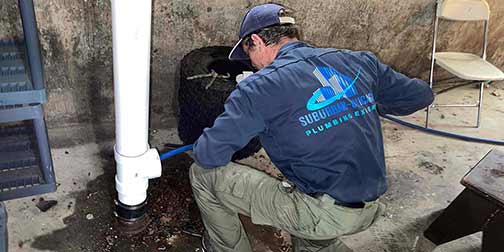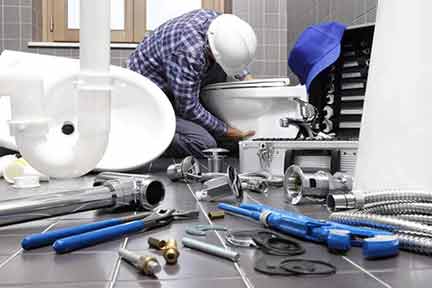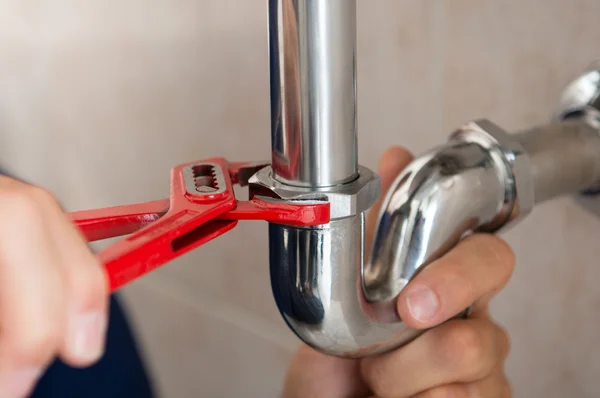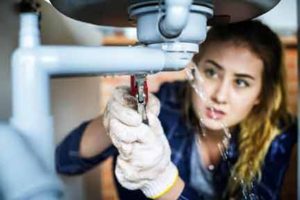Finding the right plumber when you have plumbing issues in your home is more than half the effort of solving the problem. A good plumber looks holistically at your plumbing systems, instead of simply focusing on the single issue you reported, as amateurs do. That plumber not only solves the plumbing problem but also helps you prevent future problems.
How do you find that kind of plumber?
Most homeowners wait until there is a pressing problem with their plumbing before they look for a plumber, says Envy Property Management. When you do this, chances are you won’t care much about the qualifications of the person you hire. You just want them to make the problem go away. This is one reason why plumbing problems in your home are never completely solved.
To find a qualified Chicago plumber, you should start the process long before there are issues with your home’s plumbing. This will help you avoid the anxieties that lead to hiring the wrong person.
So, what criteria should you use when trying to find a plumber for your home? If you live in the Chicago area, the list below will answer that question for you.
Are they local or national?
A national chain may have all the right people but the two things they lack are flexibility and a personal touch. These are important when looking for a plumber. You want a local company that you can build a long-term relationship with. That plumber should come to know your home’s plumbing intimately so that they can diagnose and solve problems quickly and economically.
What kind of plumbing services do they provide?
When looking for a local plumber for your home, you do not want to hire a commercial plumber in Chicago. Commercial and residential plumbing systems are very different, and a commercial plumber may not give you the kind of service you need in your home. Only hire a commercial plumber if they also provide residential plumbing services.
Ask about licensing, qualifications, and memberships
Plumbers in Chicago are required to have up-to-date licenses to practice in the city. Check that the plumber is properly licensed by the city. You will also want to know if they are members of the local chapter of their professional organization. The training of the employees who will be doing the work matters, so make sure to ask about that.
How long have they been in business?
Experience counts: not everything is learned in training. The longer a plumber has been in business, the more time they have had to gain the needed expertise to solve the most difficult plumbing issues. The other reason to hire an experienced plumber is you can use them as your sounding board; they become a trusted adviser on all plumbing issues.
Are they bonded and insured?
What kind of insurance do they have? How much insurance do they carry? The plumber’s insurance policy should include worker compensation for any worker who is injured while on your property, liability insurance to protect you from lawsuits, and property insurance if your property is damaged by their workers.
What do others say about them?
The company should have an online footprint that you can follow. Check online review sources to see what people are saying about them. Look out for negative reviews and pay particular attention to how the company responds to those. Some online sources where you can look for reviews are BBB (Better Business Bureau) and Yelp.
Can they provide references?
Ask the plumber for a verifiable list of people who have used their services in the last year. These should be people who live in Chicago. Ask the plumber’s permission to contact these references. Make sure to call some of the people on the list to find out what their experience of working with the plumber was like.
Do they offer a warranty on their work?
What happens if there are issues with a job the company did for you? Will they fix the problems at no cost to you? Will there be a warranty on the parts they supply? If there are warranties, you will want to know the terms and conditions attached to them. Warranties should be gotten in writing.
How will they estimate the cost of the job?
Will they provide a free estimate? How do they arrive at that estimate? Will you get a quote over the phone, or should you expect them to do a home inspection? You want your plumber to have the right information about a problem before quoting on the job. Do not work with plumbers who attempt to give you a quote over the phone.
How do they charge?
Do they use hourly rates or flat rates? With flat rates, you know what you are paying for a job, but hourly rates can be unpredictable. You also want to see the contract and payment terms. Do they expect you to pay upfront, halfway through the job, or after the work is completed?
—





